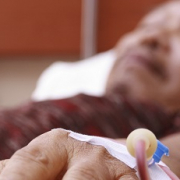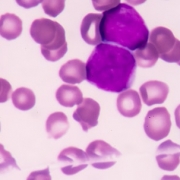Post-stroke and mini-stroke prescribing: NICE calls for comments
NICE invites comments around genomic testing for post-stroke prescriptions of clopidogrel ahead of its treatment-influencing July publication
NICE is inviting more comments on a guide that may inform the NHS’s use of genomic testing in stroke prevention. When published, the guide could influence the use of clopidogrel – a drug prescribed after some types of stroke – in England. This second consultation is looking to answer three questions on the drafted guide:
- Has all of the relevant evidence been taken into account?
- Are the summaries of clinical and cost effectiveness reasonable interpretations of the evidence?
- Are the recommendations sound, and a suitable basis for guidance to the NHS?
The NICE diagnostics advisory committee wants to hear from relevant stakeholders, the public and healthcare professionals. Those interested in giving their viewpoints should do so online via the consultation document. The deadline to comment on the draft guidance is 26 April 2024. This guidance is expected to be published in July and influence how NHS England uses genomic testing in prescribing clopidogrel to prevent secondary stroke.
Preventing secondary strokes
A stroke is a life-threatening situation where blood is blocked from reaching a part of the brain. Of an estimated 100,000 strokes that happen in the UK every year, NICE reports that 43,000, or about two in five stroke cases, occur in people who have already had a stroke. As such, after a person has an ischaemic stroke or a transient ischaemic attack (TIA, or ‘mini stroke’) – in both cases, where a clot blocks blood flow – they are routinely offered medication to reduce the risk of another one occurring.
Clopidogrel is one of the medicines available to reduce the risk of having a second stroke. NICE recommends that clopidogrel routinely be prescribed to people who have had a stroke or TIA. However, for around one-third of people with certain gene variants, this drug is less effective. Therefore, alternative treatments may be better for these patients.
- Stroke Association: About ischaemic strokes
- From our blog: Point-of-care genomic testing suggested for stroke patients
How does clopidogrel reduce stroke risk?
Clopidogrel helps prevent a stroke by stopping the platelets in the blood from sticking together and causing clots. Because ischaemic strokes and TIAs are caused by blood clots restricting blood flow to parts of the brain, preventing clots from forming lowers the risk of further (secondary) strokes.
Clopidogrel is a ‘pro-drug’. This means the drug must be converted into an active form in the body. One enzyme is mostly responsible for this conversion, and it is coded for by a gene called CYP2C19. Some people have a certain CYP2C19 gene variant that produces a version of the enzyme that is ineffective in converting (metabolising) clopidogrel’s pro-drug form into an active form. This means the drug has no effect and won’t reduce the risk of secondary strokes. In these cases, other anti-clotting medications would need to be prescribed, such as prasugrel or ticagrelor.
- GeNotes: About the CYP2C19 gene
- GeNotes: About clopidogrel
In England there are currently no national genomic-based guidelines to help clinicians determine if someone can be prescribed clopidogrel or if they should have an alternative drug. This NICE guidance hopes to resolve this by advising if, when and how a genomic test should be used.
‘Personalised care to thousands’
Genomic testing can show if a patient carries one of the CYP2C19 variants that affects if clopidogrel will work well for them. “Recommending a genetic test that can offer personalised care to thousands of people who have a stroke each year will be a step forward in ensuring people receive the best possible treatment,” said NICE’s chief medical officer Professor Jonathan Benger. The Stroke Association’s chief executive Juliet Bouverie added: “Getting on the right medication and taking it as advised can really go far to prevent further strokes.” She also emphasised that patients who have not had a genomic test should not assume that their current medication isn’t working: “If you have been prescribed clopidogrel, you need to keep taking it. If you’re worried about your risk of another stroke, you should speak to your doctor.”
NICE’s consultation in genomic testing for patients who have had an ischaemic stroke has highlighted how point-of-care pharmacogenomic testing is entering the clinic. If you’re a pharmacist or a pharmacy technician who wants to learn how genomics is impacting your work, then check out this free eLearning tutorial into pharmacogenomics.








